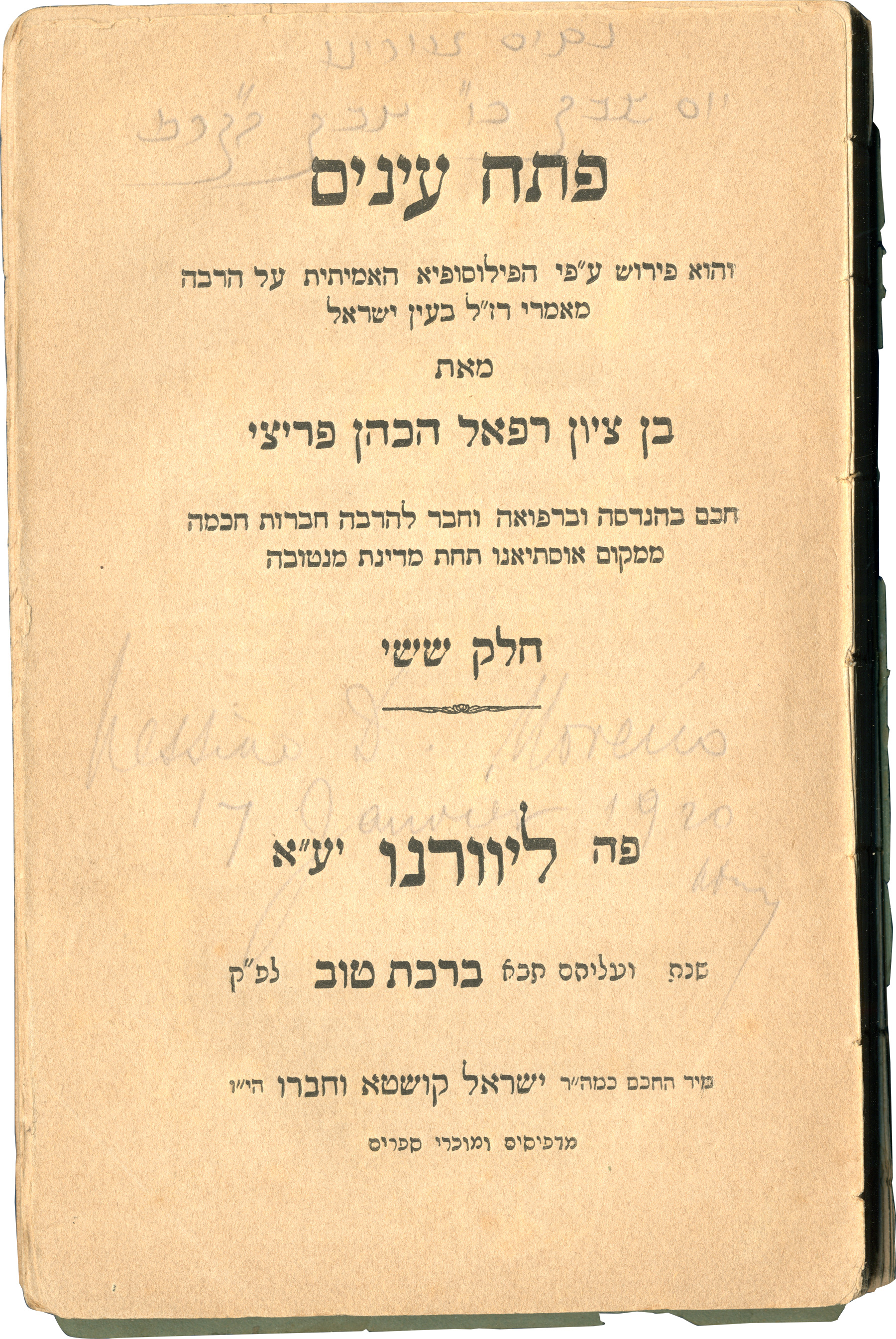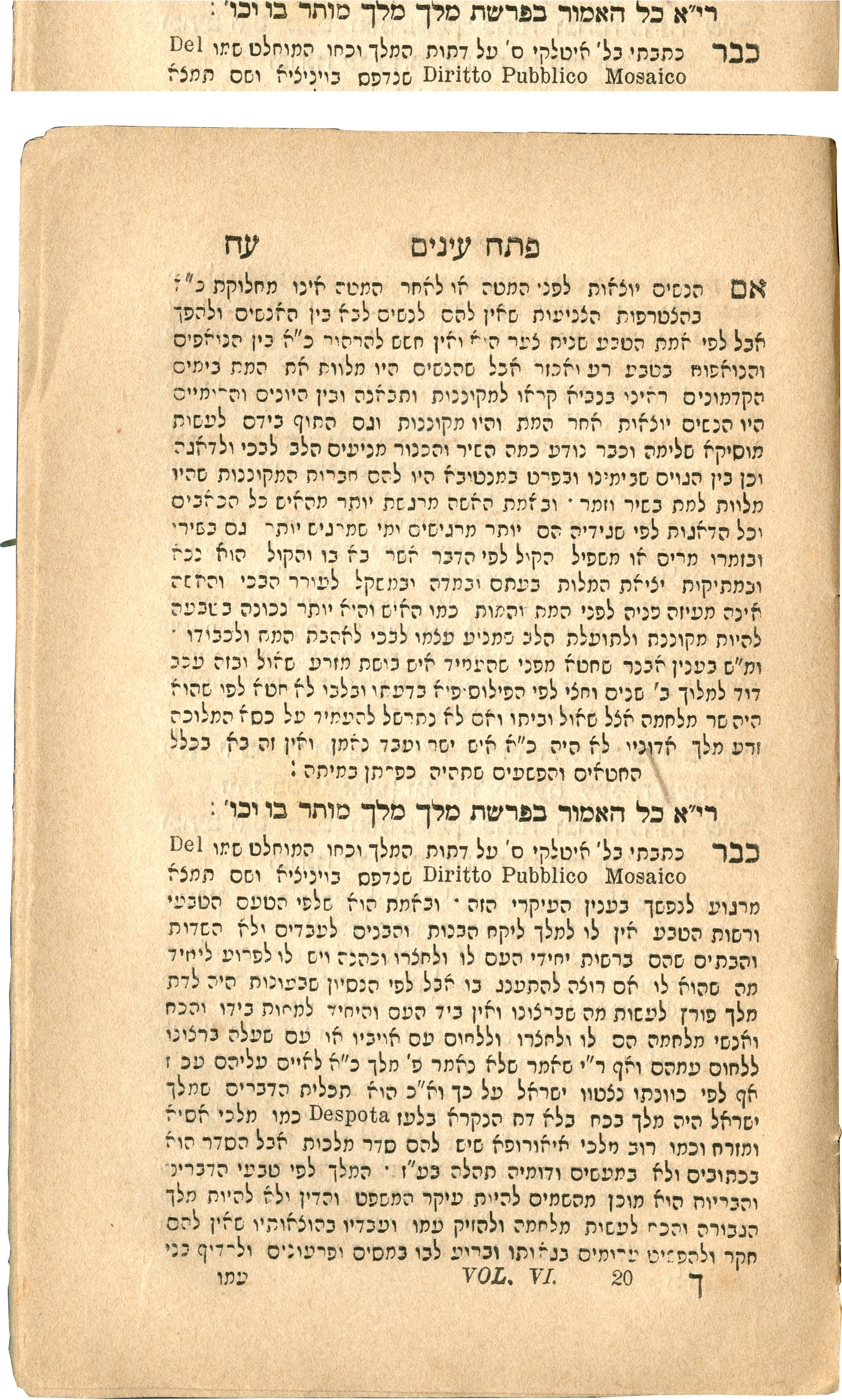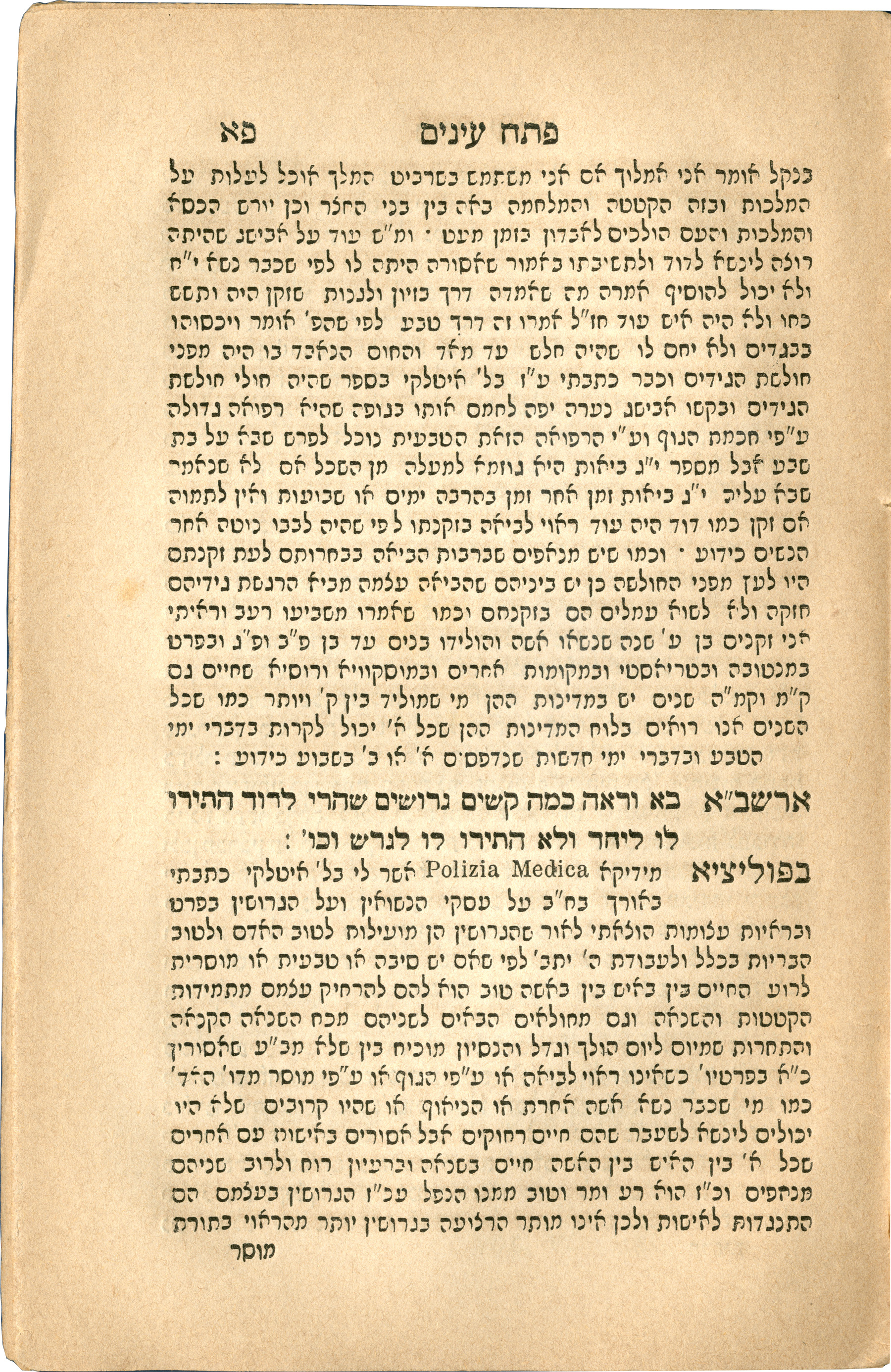Exegetical commentaries on Biblical and rabbinic texts are a rich source for Jewish political thinking. Benedetto Frizzi’s Petah Enayim (1st ed., 3 vols., Livorno 1815; 2d ed., 7 vols., Livorno 1878-81) provides an excellent example. Frizzi (1756-1844), a physician and wide-ranging scholar in northern Italy, wrote this commentary on the Ein Ya’akov, the 16th century collection of Talmudic Aggadah, in the spirit of Enlightenment science and natural philosophy. Even while calling for rationalist exegesis and social reform, he was committed to presenting classic Jewish teachings as relevant to modern concerns. Both excerpts from vol. 6, written around 1825, comment on passages in the Talmudic tractate Sanhedrin, and mention other works of his, in Italian, that treat political matters. Figure 1 shows the title page of vol. 6, from the 2nd edition.
Figure 2: The excerpt on p. 78a (re: Sanhedrin 20b) refers to his book Diritto Pubblico Mosaico (1811; full title Dissertazione sulle leggi mosaiche relative al pubblico diritto) and discusses constitutions, kings and despots, including King Solomon and Emperor Napoleon. Frizzi, like many others, often viewed contemporary events through a Biblical lens, while also projecting contemporary issues backward onto the Bible itself. Indeed, to mix together religion and politics, past and present, is a persistent temptation of Jewish political thinking
Figure 3: The excerpt on p. 81a (re: Sanhedrin 22a) refers to his six-volume book Dissertazione di Polizia Medica sul Pentateuco (1787-90), in particular vol. 3 on marriage, and discusses how divorce
Throughout his commentary, Frizzi addresses politics on both planes
Thus Frizzi's Petah Enayim offers a rich potpourri of Jewish political thinking that weaves together Biblical and rabbinic exegesis with 18th-19th century social criticism and political ideas about rights, citizenship, and empancipation. For more on Frizzi’s ideas on love and marriage, you may consult another rare book in the Katz Center library: Hezekiah David Bolaffio’s work, Ben Zekunim (Livorno, 1793, part 2, p. 49), a collection of Halakhah and Hebrew poetry, which includes a poem by Frizzi on the qualities of an ideal wife!


